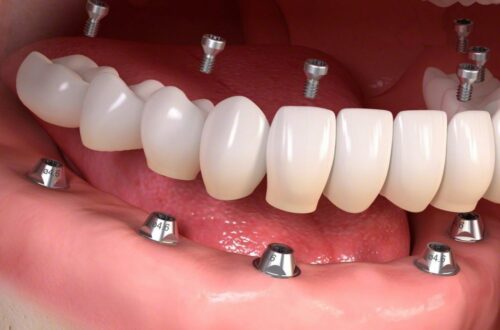
The Key to Successful Tooth Extraction: How To Remove A Tooth
The human mouth is a breeding ground for germs, and removing teeth poses even more of a threat to your oral health. Tooth decay, cavities, and gum disease are all much more common if you have even one tooth left in your mouth. That’s why it’s so important to take care of your teeth as soon as possible. A tooth extraction is the most painful part of going through the dental procedure process, but with the right information and a little practice, you’ll be able to go through the process like a pro in no time. Keep reading to learn everything you need to know before heading into that scary dentist’s office!
Did you know that a very small number of people of the same age have missing teeth? What rarely, rarely do I pay attention to the fact that this is a serious problem! Deficiencies remaining without the need to maintain until the bone disappears, then it is necessary to rebuild the jaw bone. In order not to support it, take care to fill in the gaps. Update to be supplemented with additions as part of Implanty Poznań services.
Why Is it Necessary to Have Teeth Removed?
As with any part of the body that is connected to the nerve and blood supply, teeth are a breeding ground for bacteria that can cause bacterial infections, gum disease, and cavities. In fact, about 80% of adults will have some form of gum disease by the time they turn 80. Left untreated, these infections are extremely painful, and can lead to serious complications such as heart disease and stroke, or even tooth loss. The best way to avoid any of these issues is to have all your teeth out as soon as possible. If you’re ready to start removing your teeth, there are a few important things to keep in mind. First, you should know that extraction is generally more painful than root canal therapy or crowns, so be prepared for that. Another thing to keep in mind is that there is a very real chance that you may experience permanent damage to the nerves in your face. If you have a particular phobia of going to the dentist, you may want to think twice before having all your teeth removed. Having a tooth extracted is almost as scary as having a root canal, and if you’re nervous enough about it, you may permanently damage the nerves in your face.
How A Tooth Extraction Works
Traditional tooth extraction is done with a tool called an extraction tube. Your dentist will place a thin tube into one of your teeth, then use a suction machine to pull the tooth out of your mouth. This procedure is done very quickly, and you may feel some discomfort while you’re having your teeth removed, but you should never experience any pain that is too severe to be managed with pain reliever. Once you’ve had all your teeth removed, your dentist will clean out any remaining bits of tooth, then place in a crown or other tooth-colored enclosures that seals the area and protects your new healthy teeth. If your tooth is very damaged, or if it’s very close to a nerve, your dentist may instead choose to do a tooth extraction by forceps. This is a slightly more invasive method, but it should be much less painful than a traditional tooth extraction.
What Happens During a Tooth Extraction?
A tooth extraction is a relatively short procedure, usually taking no more than 15 minutes. Once you’re in the dentist’s chair, your dentist will numb the area where the extraction will occur, then place a thin tube into your mouth and attach an extractor. The dentist will then apply suction, and the extraction will begin. During the extraction, your dentist will probably ask you to bite down, to relax the muscles in your face, and you may feel some tugging on your teeth. Your dentist will remove all your teeth, and place them in a container to be cleaned and stored. Depending on the method of extraction, you will be given some sort of pain reliever, such as ibuprofen or an acetaminophen combination drug. It is extremely important that you never attempt to stop crying or managing your pain on your own. Your dentist will be available to you throughout the entire procedure, so you need to let them know if you are in any pain and ask for help as needed.
Quick Guide To Overcome The Fear Of Surgery
If you’ve never had a tooth extraction before, you may be nervous about going into the procedure. Fear not! There are a few things you can do to help make the experience less scary. – Play it cool – Try to act like you’ve had tooth extraction before. This will help you relax and avoid panicking. – Pray – If you’re religious, pray to whatever god it is you pray to that your extraction will be a good experience. If you don’t believe in any god at all, you can substitute in for nice words about how you’re a great person and you deserve to have a great extraction experience. – Bring someone with you – Have a friend or family member with you when you go to your appointment. This can help you relax, and they can catch you if you start to panic. – Get ready ahead of time – Get your bite and hygiene routine down first so that you can focus on the important things while you’re getting your teeth cleaned. – Wear some comfortable clothes – You will be in the dentist’s chair for a while, and waiting can be very uncomfortable if you’re in a clean shirt and tie.
Tips Before and After the Procedure
– Get to the Dentist’s Office as Early as Possible – It’s never too early, and it’s better to be late than to miss your appointment. If possible, try to arrive at least 30 minutes before your appointment time. – Bring Something to Read – You’re going to be sitting in the dentist’s chair for a while, so bring something to read so you can pass the time. – Make Sure Your Teeth are Clean – Make sure you brush your teeth before you go to the dentist’s office. If you don’t mind brushing your teeth with something harsher than a toothpaste, you may want to consider using mouthwash. – Make Sure You are Adequately Numbed – You should definitely bring along some sort of pain reliever to help with any pain you may experience during your procedure.
Conclusion
While tooth extraction is never really a pleasant experience, you can get through it much more calmly and pain-free if you prepare yourself properly. Be sure to get to your appointment as early as possible, bring along some reading material, and make sure you are fully numb. This will help you relax and get through the procedure as smoothly as possible.




